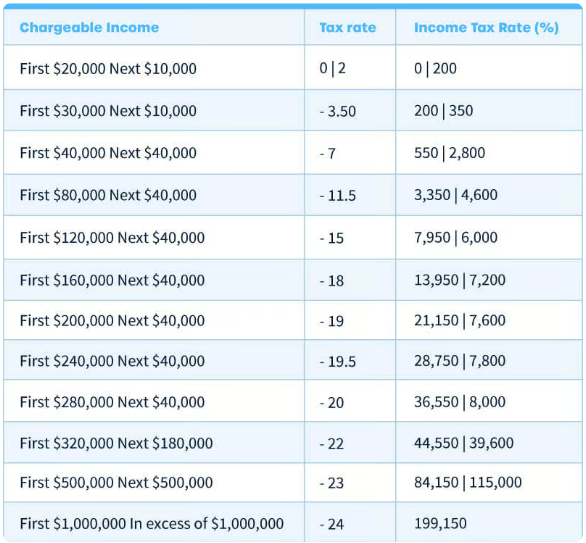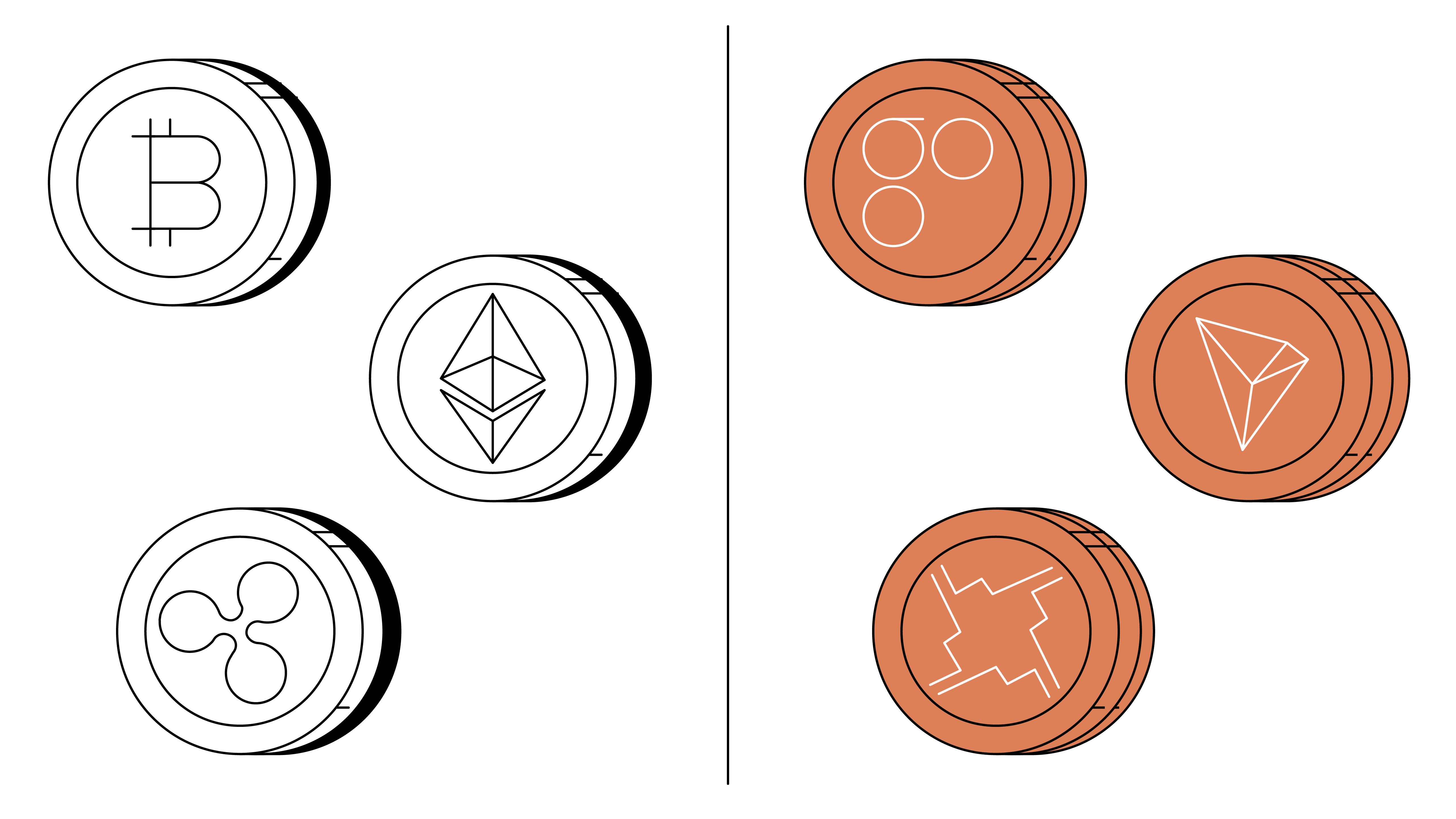Contents
How IRAS Classifies Crypto Transactions
Real-World Examples
1. Individual Investor
2. Professional Trader
3. Company Issuing Tokens
Capital Gains & Personal Crypto Investment
When You Don’t Owe Taxes
Holding Crypto vs. Realising Gains
Signs You’re Trading as a Business
Digital Payment Tokens vs. Security Tokens
Tax Treatment of Specific Crypto Activities
Airdrops, Forks & Token Giveaways
Staking and Mining Cryptocurrency Rewards
How to Report and Prepare for Crypto Taxes in Singapore
Step-by-Step IRAS Crypto Tax Prep
When to Consult a Tax Professional
Gemini Tools for Accurate Reporting
FAQ
Crypto Tax in Singapore (2025 Guide): What Every Investor and Trader Needs to Know
Updated August 13, 2025 • 6 min read

Contents
How IRAS Classifies Crypto Transactions
Real-World Examples
1. Individual Investor
2. Professional Trader
3. Company Issuing Tokens
Capital Gains & Personal Crypto Investment
When You Don’t Owe Taxes
Holding Crypto vs. Realising Gains
Signs You’re Trading as a Business
Digital Payment Tokens vs. Security Tokens
Tax Treatment of Specific Crypto Activities
Airdrops, Forks & Token Giveaways
Staking and Mining Cryptocurrency Rewards
How to Report and Prepare for Crypto Taxes in Singapore
Step-by-Step IRAS Crypto Tax Prep
When to Consult a Tax Professional
Gemini Tools for Accurate Reporting
FAQ
Understanding Singapore’s Tax Framework for Crypto
The first step to navigating crypto tax in Singapore is to understand the country’s tax framework. To determine your tax obligations, you need to know how IRAS classifies your crypto transactions, as this will determine whether your profits are subject to GST or income tax.
Unlock the future of money on Gemini
Start your crypto journey in minutes on the trusted crypto-native finance platform
How IRAS Classifies Crypto Transactions
For Goods and Services Tax (GST) purposes, IRAS categorises crypto transactions based on their nature and date. Since 1 January 2020, converting and lending digital payment tokens to earn interest are GST-exempt. When paying for goods or services with digital payment tokens, GST is applied to these items themselves, not the tokens used for payment.
Separately, IRAS also classifies crypto transactions for income tax. If a business or individual earns crypto in exchange for providing goods or services, that income is taxable.
Resident tax rates range from 0 to 22%, depending on income level.
Non-residents are taxed at 15% on employment income and 22% on other income.
Refer to the table below for a detailed breakdown of applicable rates.

Source: Singapore Crypto Tax: A Comprehensive Guide (2025)
Real-World Examples
1. Individual Investor
You buy Bitcoin on a crypto exchange and hold it as a personal investment for several months. You later sell it for profit and pay no income tax. This is because the profit earned is treated as a capital gain.
2. Professional Trader
You are based in Singapore and actively trade crypto, for example, using bots or trading frequently throughout the day. If IRAS determines that your trading activity is systematic, frequent, and profit-driven, it may be classified as business income, and your profits would be subject to income tax.
3. Company Issuing Tokens
A Singapore-registered company develops a blockchain platform and issues its own native utility tokens. Revenue generated from the sale of these tokens is considered sales income and is subject to corporate income tax and is seen as sales revenue.
Capital Gains & Personal Crypto Investment
This section outlines how profits from crypto-related activities may (or may not) become taxable income in Singapore.
When You Don’t Owe Taxes
There is no capital gains tax in Singapore, a benefit many crypto investors enjoy. If you’re holding crypto for personal investment, without engaging in frequent or organised trading, your gains are generally not subject to tax.
Long-term holding or occasional buying and selling for personal use also incurs no tax.
Holding Crypto vs. Realising Gains
Holding crypto assets incurs no immediate tax, even if its value rises (unrealised gains), because, as mentioned, Singapore does not impose capital gains tax on individuals.
However, tax may apply upon disposal of the crypto if the transaction is considered part of a business activity (as outlined in the next section). Disposal includes selling crypto for fiat (e.g., SGD), trading crypto for another crypto, or using it to purchase goods or services.
In summary, if your crypto use is purely personal and not part of a business, these disposals are typically not taxed. But if IRAS considers your activity as trading or business-related, the profits may be subject to income tax.
Signs You’re Trading as a Business
IRAS may classify your crypto profits as business income – and therefore taxable – if your activities extend past personal investment. Grasping that distinction is key to managing your tax obligations.
To determine if your trading activity is considered a business, IRAS looks at several indicators, also known as “badges of trade”:
Frequency and volume: A higher frequency and high-volume transactions suggest trading activity.
Holding period: Short holding periods can be taken as a speculative intention to profit from quick price movements.
Organisation: Systemic or structured buying and selling may resemble business operations.
Supplementary work: Marketing efforts, for example, suggest commercial intent.
Intention: Refers to your primary purpose when acquiring the crypto.
If one or multiple factors apply, IRAS may treat your activity as a business, and profits may be subject to income tax.
Digital Payment Tokens vs. Security Tokens
IRAS defines digital payment tokens (DPTs) as fungible digital representations intended as a medium of exchange. Examples include Bitcoin (BTC), Ether (ETH), and Litecoin (LTC).
In contrast, security tokens (e.g. Polymath, RealBlocks, and WeWork) are digital representations of ownership rights or serve as value-transfer instruments for specific assets. They share traditional securities' regulatory protections.
Below is a summary of how taxes apply to both digital payment tokens and security token transactions:

Tax Treatment of Specific Crypto Activities
Now that we have covered the basics of GST, income, and crypto tax in Singapore, we can examine how specific activities are taxed.
Airdrops, Forks & Token Giveaways
1. Airdrops
An airdrop is a free distribution of cryptocurrency tokens to multiple wallet addresses. Airdrops you acquired without providing anything in exchange (e.g., casual airdrops from holding a token) are generally not taxed upon receipt, as the IRAS considers it a “windfall”. Selling unsolicited airdrops, however, is considered payment for work, and those profits are taxable.
2. Forks
A blockchain fork alters its protocol. A hard fork creates a new, incompatible chain and tokens, while a soft fork updates without new ones. In Singapore, unsolicited tokens from a hard fork are not taxable on receipt. Selling these tokens later creates taxable profit only if your activities constitute a business.
3. Token Giveaways
Token giveaways, when provided in exchange for completing specific actions like promoting a project or completing marketing-related tasks, are taxable. This is because IRAS categorises these rewards as income from services, which are subject to tax.
Staking and Mining Cryptocurrency Rewards
Tax implications in Singapore for one-off token receipts (e.g. airdrops, forks) are distinguishable from active crypto earnings. Staking involves locking crypto to support a network and earn rewards. Mining uses computing power to validate transactions and mint new crypto. Specific tax rules apply to earnings from these digital assets.
1. Staking Rewards
If your staking rewards exceed SGD 300 annually, you must declare this in your income tax return. IRAS might consider it a business, which means your profits would be assessable as tax.
2. Mining Rewards
If you are mining crypto as a hobby, you will likely not pay taxes on earnings. If you mine systematically, regularly, and develop an income, IRAS may deem it a business. IRAS does not specify a monetary threshold for mining; refer to the badges of trade shown above.
How to Report and Prepare for Crypto Taxes in Singapore
We understand that accurate reporting is essential for meeting your crypto tax obligations. Our step-by-step crypto tax prep guide below simplifies reporting for seamless tax compliance.
Step-by-Step IRAS Crypto Tax Prep
1. Understand Your Tax Residency
Start by determining your Singapore tax residency. Are you a tax resident or non-resident? This affects your obligations and applicable rates.
2. Identify Taxable Income
While individuals are exempt from capital gains tax in Singapore, business activities or service earnings are taxable.
3. Maintain Meticulous Records
Keeping records of all your crypto transactions is vital. Include details like:
Dates and times of all transactions.
Fair Market Value (FMV) of the crypto in SGD at the time of each transaction.
Purpose of the transaction.
The quantity of crypto involved.
Wallet addresses and exchange names.
Any associated fees.
4. Declare Income to IRAS
Individual taxpayers in Singapore typically use Form B1 (residents) or Form M (non-residents) to file returns. The e-filing deadline for annual tax returns is 18 April. Declare your crypto income by this date.
5. Consider GST Implications
Businesses supplying digital payment tokens should review GST thresholds and obligations. While digital payment tokens are GST-exempt when exchanged, GST may still apply to other crypto services.
When to Consult a Tax Professional
Tax laws can be nuanced. We strongly recommend consulting a tax professional or advisory firm operating in Singapore if:
You engage in high-frequency trading or complex crypto activities.
You are unsure if your activities constitute a business.
You have significant crypto holdings or diverse income streams.
You need personalised advice on specific token types or complex financial structures.
Gemini Tools for Accurate Reporting
Gemini supports your tax preparation by providing comprehensive transaction history from our Exchange and ActiveTrader trading tools. Access and export all relevant data – including buys, sells, trades, cryptocurrencies, and stablecoins – directly from your Gemini account. A clear audit trail is what you’ll need to comply with Singapore’s tax regulations.
Gemini Digital Payments Singapore, Pte. Ltd has received In-Principle Approval for a Major Payment Institution license from the Monetary Authority of Singapore (MAS).
FAQ
1. Is cryptocurrency legal in Singapore?
Yes. The Monetary Authority of Singapore (MAS) regulates certain crypto activities under the Payment Services Act 2019.
2. Do I pay crypto tax in Singapore if I only trade once or twice a year?
According to the badges of trade, this would constitute infrequent trading by an individual. This does not trigger income tax.
3. Are staking rewards taxed as income?
Yes, staking rewards are taxed as income if your annual income exceeds SGD 300. You should declare these as part of your assessable income.
4. What about NFTs or GameFi tokens?
The tax treatment for NFTs or GameFi tokens depends on their specific nature and use. Trading them habitually for profit may lead to business income tax. If they confer utility or security-like rights, existing tax rules for those categories may apply.
5. Do I need to declare foreign exchange or offshore wallets?
If your offshore wallets hold crypto that generates taxable income, you must declare it. While Singapore generally taxes income on a territorial basis, foreign-sourced income becomes taxable if received in or remitted to Singapore.
6. How are crypto derivatives taxed?
Crypto derivatives are taxed based on whether the activity constitutes a business. Income tax applies only if there are business profits from such trading, as individuals face no capital gains tax in Singapore.
Cryptopedia does not guarantee the reliability of the Site content and shall not be held liable for any errors, omissions, or inaccuracies. The opinions and views expressed in any Cryptopedia article are solely those of the author(s) and do not reflect the opinions of Gemini or its management. The information provided on the Site is for informational purposes only, and it does not constitute an endorsement of any of the products and services discussed or investment, financial, or trading advice. A qualified professional should be consulted prior to making financial decisions. Please visit our Cryptopedia Site Policy to learn more.

Is this article helpful?


